World Bee Day
World Bee Day, May 20th was launched in 2017 by United Nations to celebrate bees and the crucial role they play in the world as pollinators. Also, to encourage measures to protect bees from threats and promote beekeeping.
Bees are very very important to our survival as a species and to the planet as whole – yet for some of us they have a very scary side – more on that later!
Bee facts:
• One-third of the world’s food production depends on bees. They pollinate 75% of leading global crops
• They are one of the one million species facing extinction. That would mean far fewer soft fruits, apples, beans tomatoes etc.
• There are many species of bees in the UK and it is most commonly the honey bee that stings. Bumble bees rarely sting. Wasp stings are more common, and there are many species of wasps.
Things to do to help bees survive:
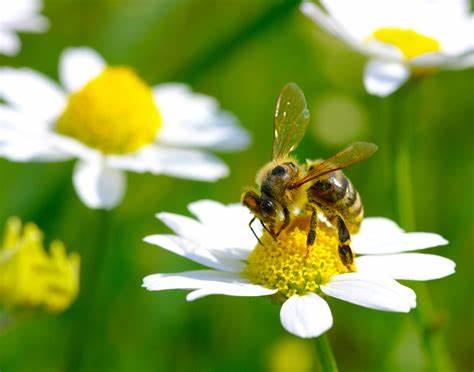
1. Plant bee friendly plants like daisies and red clover.
2. Leave a small dish with a few pebbles and water for them to drink.
3. Cut out the usage of pesticides in your garden, as they can harm bees
4. Support your local beekeepers and buy their honey and other hive products.
Being allergic to bees and stings:
I have a bee sting allergy but most people are not allergic to bee and wasp stings. A sting can cause someone like me to have an anaphylactic shock, which could be fatal.
For most people, there is a small risk that if they have been stung once, they could have an allergic reaction to bee stings. However, most of us are rarely stung by bees – maybe once every 15 to 20 years.
According to Allergy UK, there are approximately ten reported deaths each year from wasp or bee sting reactions. However, there may well be more deaths occurring which are mistaken as heart attacks, stroke or other causes.
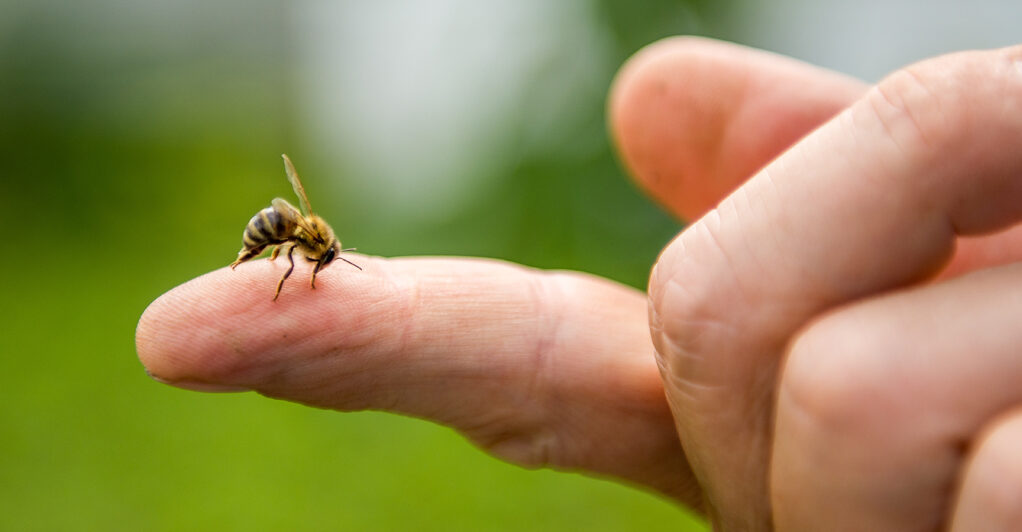
Those of us who are in danger of having an anaphylaxis reaction, carry an AAI (Adrenaline Auto-Injector) with us, and make sure that family or friends with us know how to use it should we be unable to inject ourselves.
Therefore it’s important for us to know if we are visiting you – and you have a garden with lots of bees, or you keep bees, that we are given advance notice. This may mean that we have to stay inside, or find an alternative venue to meet.
If so, please don’t be offended by this. I appreciate the value of bees as much as anyone else, I just cannot risk being around them and it would be foolish of me to take such a risk knowingly.
Different reactions to bee and wasp stings:
*A normal reaction: the sting site is painful, it will have some redness around the sting site, and may swell and itch. This lasts for a few hours.
*Large local reaction: Sting site is more painful, with bee sting swelling and itching at both the sting site and in surrounding areas. Lasts for days.
*Severe allergic reaction: Can commence within minutes of being stung. The whole body may be involved, and you may feel dizzy, nauseated and weak. There may be stomach cramps and diarrhoea. They may have itching around their eyes, feel hot, or cough, hives breaking out, followed by vomiting and swelling. This swelling can impact the airways – and that is very very serious.
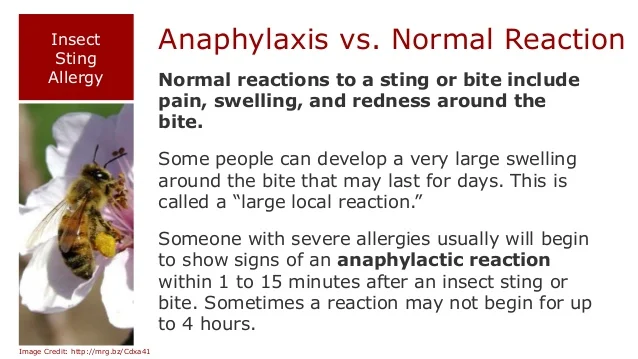
*If you are stung around the neck, face and the swelling affects the tongue, throat or airways call 999 immediately. This could happen even if you are unaware that you have an allergy previously.
You can also have a delayed reaction to bee stings so always make sure you’re prepared for any been and wasp reaction.
As you can imagine, as summer approaches, going out with friends who want to eat outside, or spend time around flowers and natural habitats where bees and wasps are, can cause stress.
That Bridgerton scene:
This stress has even been seen recently on the Netflix series, ‘Bridgerton’. Anthony Bridgerton panics when Kate is stung by a bee. Fans may already know that as a boy, he witnessed the death of his father, Edmund who died after being stung by a bee, and as a result, Anthony is very also very wary of them. Even though they show Anthony’s father dying from a bee sting in the 19th century this was way before epi-pens were invented and antihistamines so now there are many ways in order to save a life from anaphylactic shock.
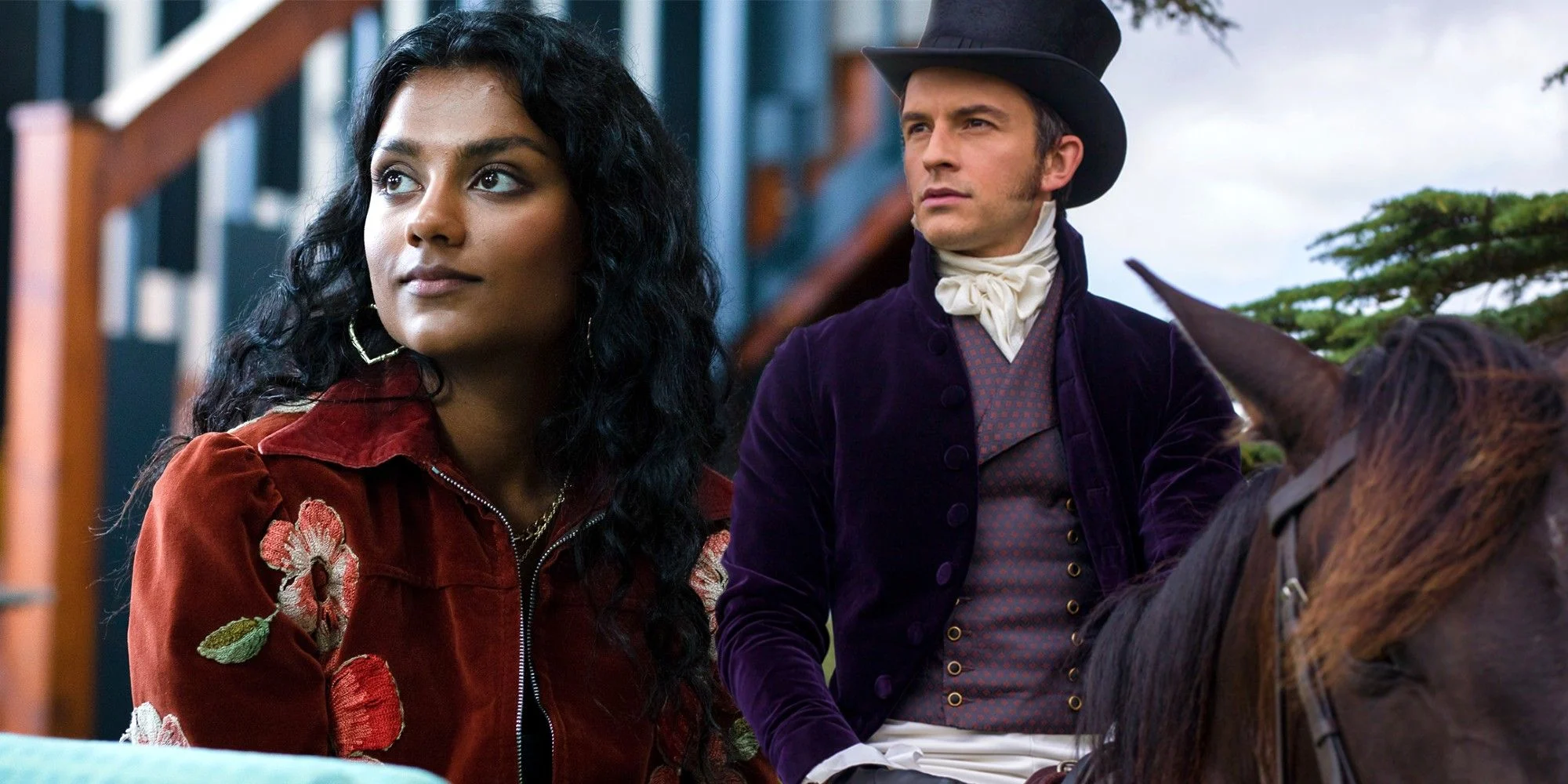
The author of the books, Julia Quinn says this scene was partially inspired by a story involving her mum, who was a school nurse.
One day, she was buying a hot dog from a local vendor, and he had a reaction to a bee sting. She knew exactly what to do and was able to rush him to the doctor and that undoubtedly saved his life. In return, he gave her the promise of free hot dogs for life!
Tips on how to reduce the chance of being stung:
1. When eating outdoors, always keep food covered, especially fruit and soft drinks. The scent of outdoor cooking, food, eating, the presence of bins will all attract wasps.
2. Keep food or waste in tightly sealed containers. Ensure you dispose of food waste frequently during the summer and early autumn.
3. Take care when the lawn is being mown that nests are not disturbed. That can provoke stinging behaviour.
4. If a bee or wasp flies near you, protect your face and keep still, or slowly move away, go indoors.
5. If a bee or wasp comes into your car as you are driving, try to remain calm. If your windows aren’t open, open them for them to fly out, and pull over as soon as it is safe to do so, when you can open doors too for them to escape. Ideally, drive with your windows closed and air-con, on.
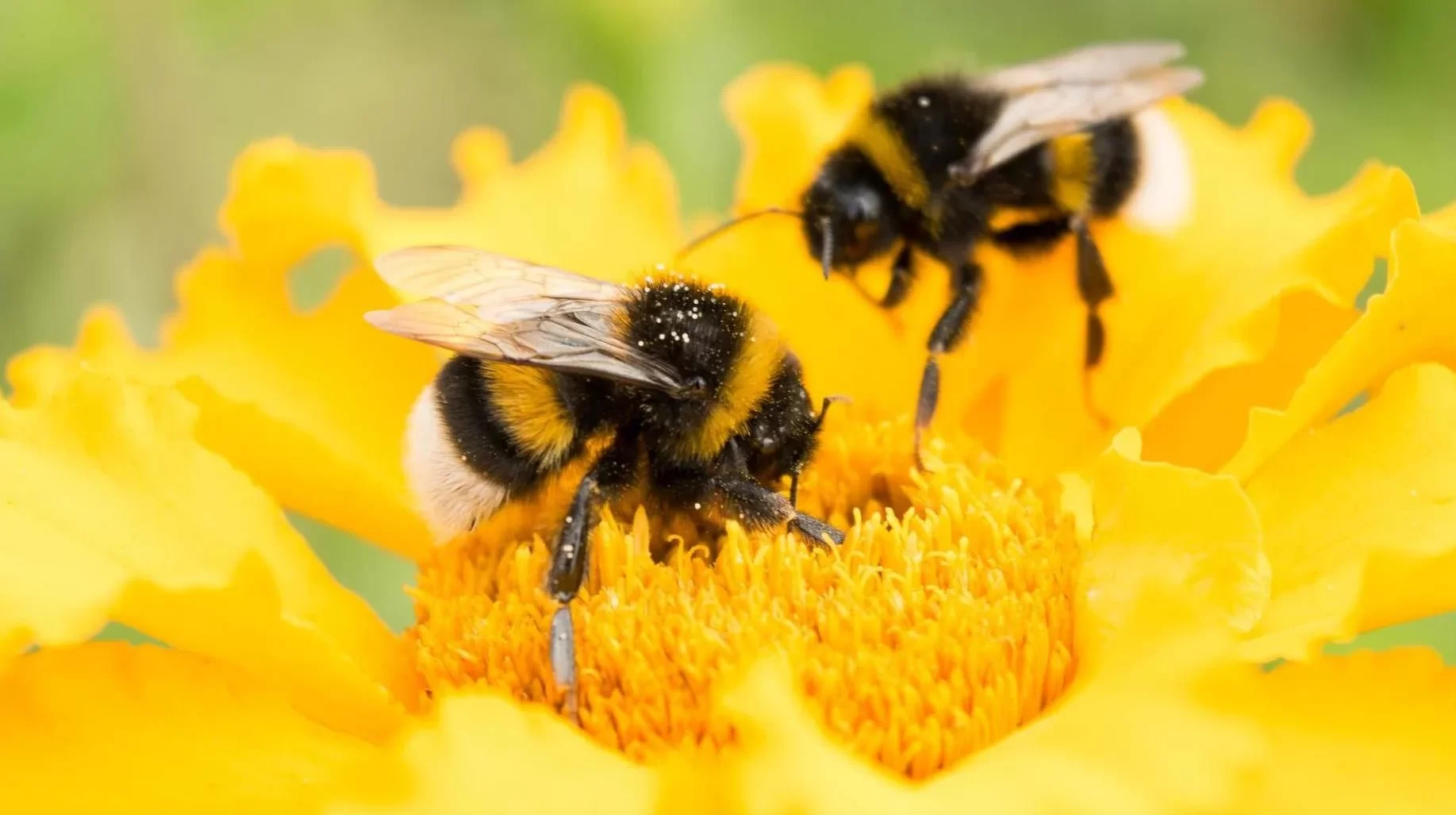
6. Avoid walking near fruit trees, and especially where there is fallen fruit, as they often contain wasps. Keep lawns free of dandelions and clover, which attract bees, and avoid flowering trees, shrubs and flowers when bees and wasps are collecting nectar.
7. Perfume, hair spray, hair tonic, suntan lotion, heavily scented shampoos, soaps and other cosmetics also attract insects and should be avoided.
8. Shiny jewellery can also attract insects, as do bright coloured clothes. Flowery prints and black especially attract insects which is why bee keepers wear light coloured clothing, e.g. white, light grey or beige. Wearing a hat, and closed shoes, rather than sandals is a good idea too.
Enjoy your summer!





